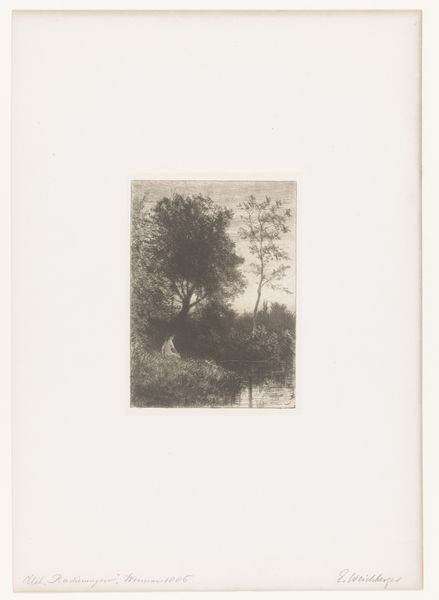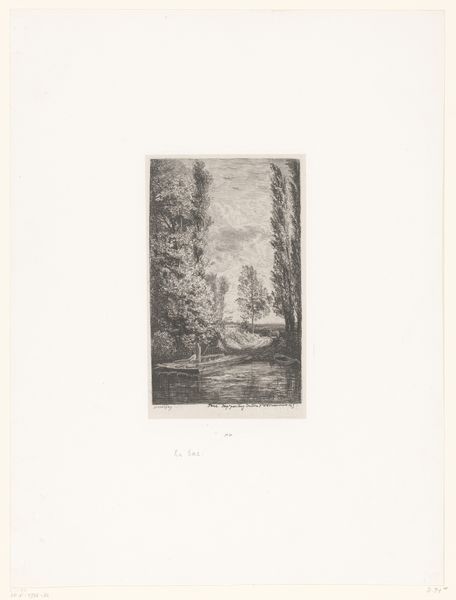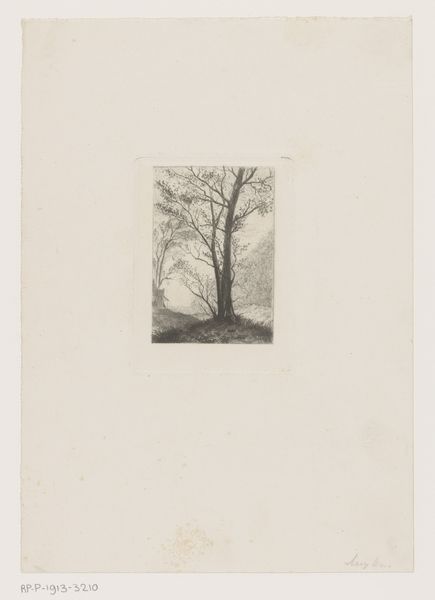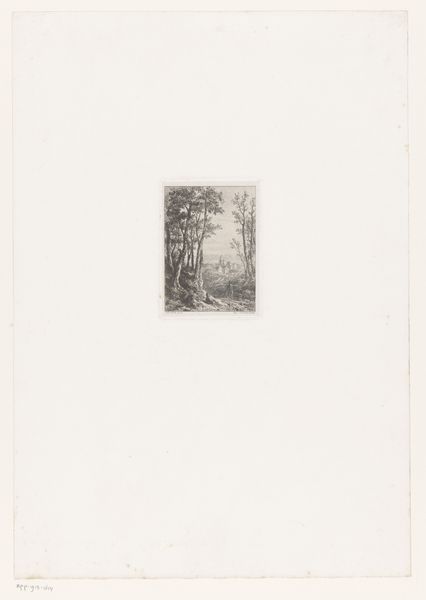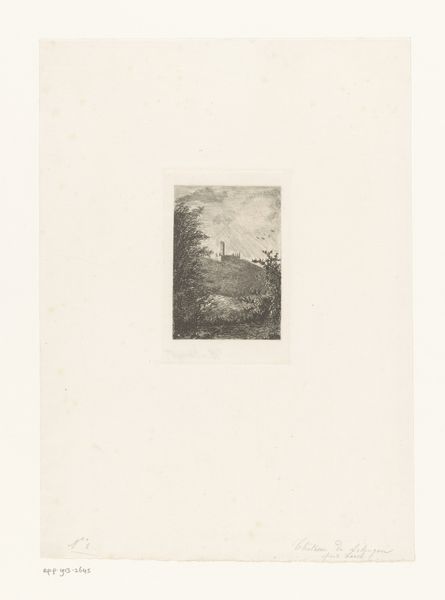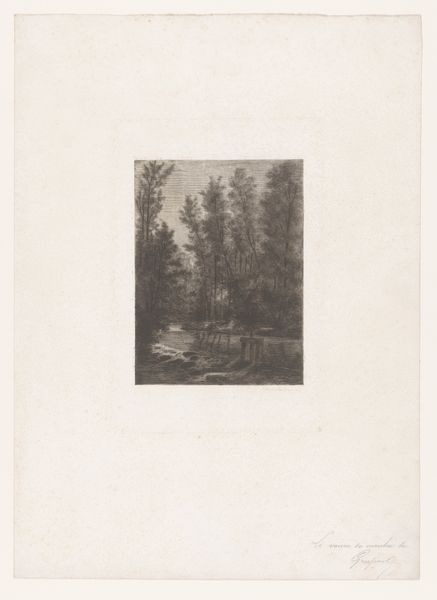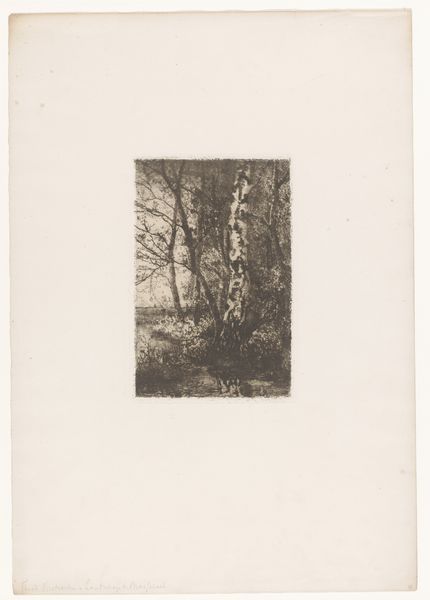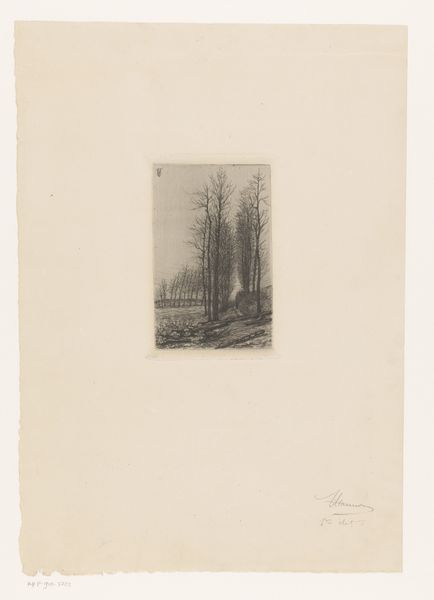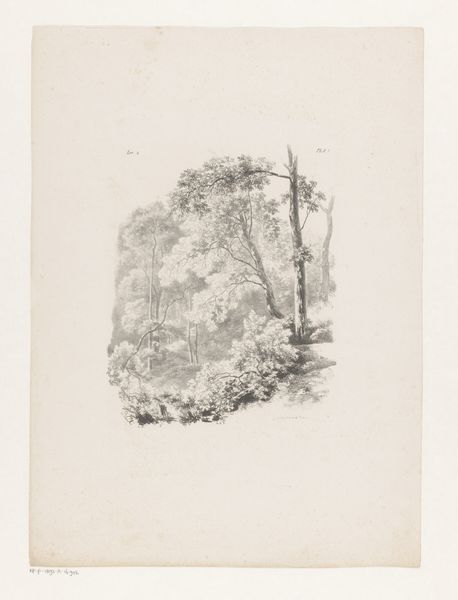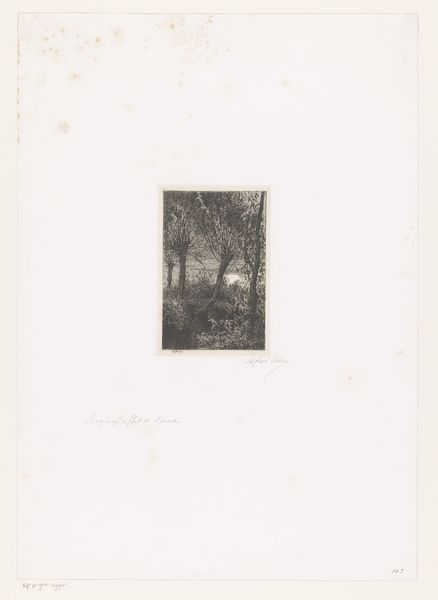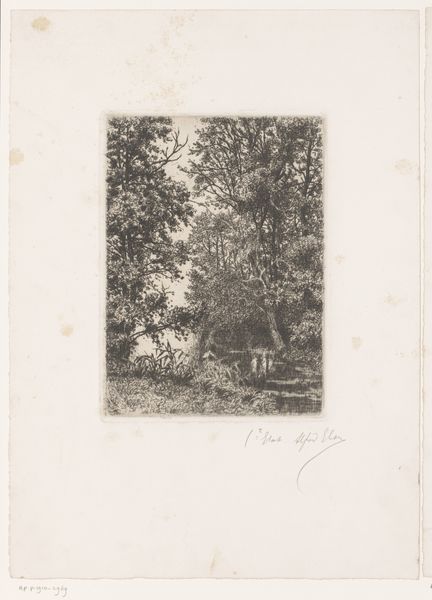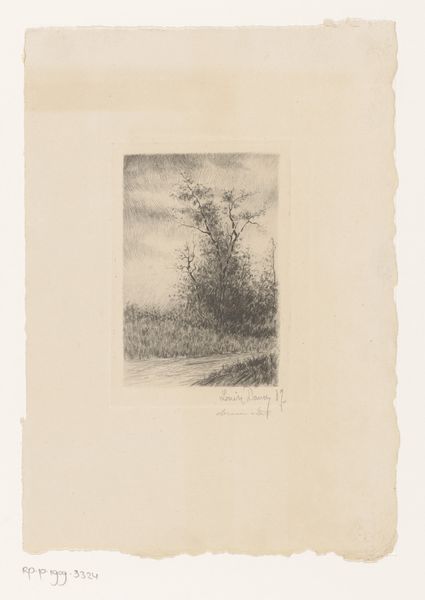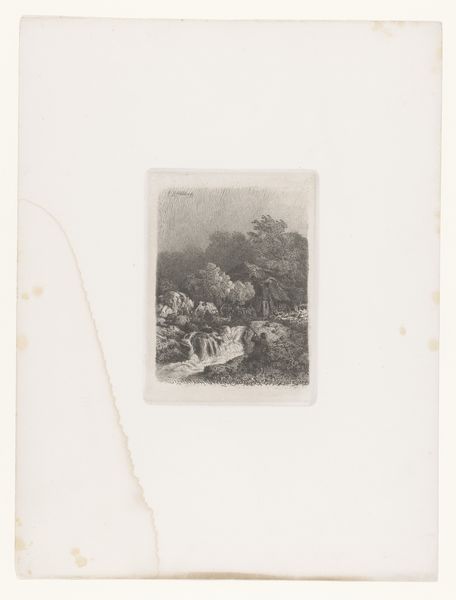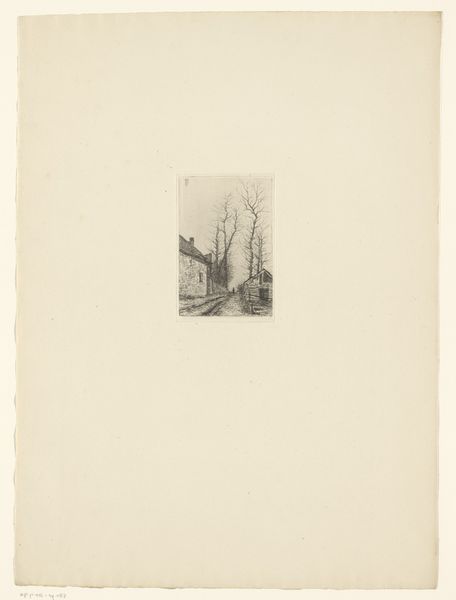
drawing, lithograph, print, etching, plein-air, paper
#
drawing
#
lithograph
# print
#
impressionism
#
etching
#
plein-air
#
landscape
#
paper
Dimensions: 217 × 145 mm (image); 570 × 398 mm (sheet)
Copyright: Public Domain
Camille Corot created this print, The Philosophers’ Retreat, using the etching process. It’s a technique where the artist covers a metal plate with a waxy ground, then scratches an image into the ground with a needle before submerging the plate in acid. The acid bites into the exposed metal, creating lines that hold ink. The resulting print has a unique character defined by the etched line. Look closely, and you’ll see how the varying depth and thickness of the lines create a sense of light and shadow, of texture and depth, bringing the landscape to life. But beyond the aesthetic qualities, the etching process also speaks to broader social issues. Printmaking allowed for the mass production of images, making art more accessible to a wider audience. It democratized the consumption of art. This challenges traditional notions of artistic value tied to unique, handcrafted objects. So, when you look at this print, think about the materials, the making, and the context. Consider how the etching process, and the circulation of images, redefined the boundaries of art and society.
Comments
No comments
Be the first to comment and join the conversation on the ultimate creative platform.
